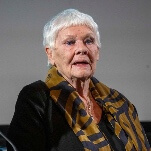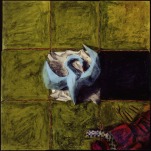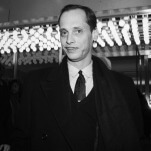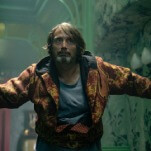Fighter

Documentaries about the Holocaust have become so commonplace that they're almost a genre unto themselves, with a predictable tone and a formula that matches grueling testimonials with horrific archival footage, usually tied together by celebrity narration. But Amir Bar-Lev's lively, unconventional Fighter breaks from this tradition of grim sobriety and retraces the period with a pair of tough-minded Jewish survivors who argue fiercely over their place at various intersections of history, morality, and politics. Bar-Lev opens with an iconic shot of Jan Wiener, a 77-year-old in robust health and peak physical condition, delivering swift blows to a punching bag in the garage of his home in Lenox, Massachusetts. On an extraordinary journey that led him from the ghettos of Nazi-occupied Czechoslovakia to fascist Italy to a post battling the Germans in Britain's Royal Air Force, Wiener's fighting spirit helped him survive countless scrapes with death, even though it affects his personality in sometimes toxic ways. His friend Arnost Lustig, a fellow Czech émigré and writer seven years his junior, shares a similar background—both of their families were wiped out during the war—but he has a gentler and more intellectually curious temperament that doesn't always mesh well with Wiener's. Piling the two men, Bar-Lev, and a camera crew into a minivan, Fighter documents their three-week trip across Europe, recounting the adventures and painful memories of Wiener's amazing odyssey across Europe from his home in Prague and back again. A great and passionate storyteller, Wiener returns to the office of a Czech collaborator who granted him an exit visa, but not before scornfully telling him that he wouldn't live long enough to wear out more than one pair of shoes. From that point on, he was determined to stay alive just to take revenge on that man and actually returned to the same office at the end of the war with a gun strapped to his leg, fully prepared to carry out his vendetta. Hatred, he admits, was a primary motivation, and his cantankerous attitude flares up frequently in his conversations with Lustig, who isn't shy about posing difficult questions. The greatest source of their enmity was Lustig's involvement with the Communist Party in post-war Czechoslovakia, which arbitrarily imprisoned Wiener at a labor camp for five years under bogus accusations that he was a British spy. Though Lustig soured on the Party when its ideals were horribly corrupted, the differences between him and Wiener (a man of ideas and a man of action, respectively) grow more pronounced as the filming wears on. Bar-Lev's camera observes them with the discomfort of a friend stuck in the middle of an argument, squirming through tenuous debates that are nonetheless enlightening in their philosophical fissures. Far from the solemn earnestness of most Holocaust documentaries, Fighter addresses the war and its oft-toxic reverberations with refreshing impudence and candor.







































